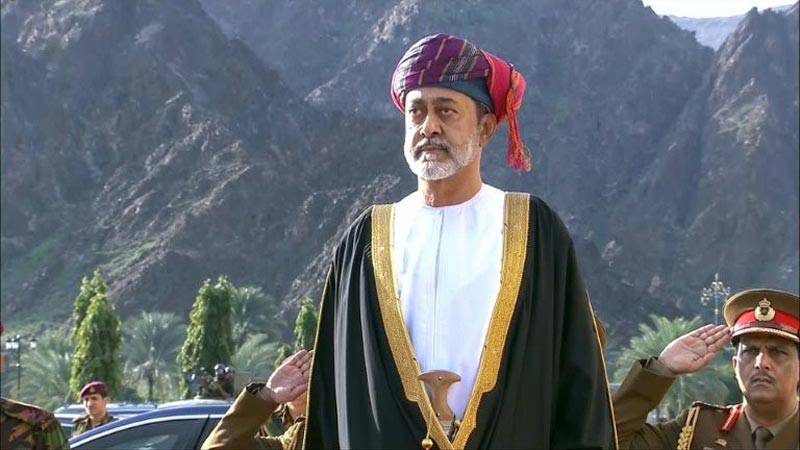 When Oman’s Sultan Qaboos bin Said named his preferred successor in a sealed envelope, he prioritised continuity by choosing a cousin with extensive foreign policy experience.
When Oman’s Sultan Qaboos bin Said named his preferred successor in a sealed envelope, he prioritised continuity by choosing a cousin with extensive foreign policy experience.
Haitham bin Tariq al-Said, confirmed as sultan by the ruling family on Saturday based on the letter opened after Qaboos’ death on Friday aged 79, has been central in charting the Gulf state’s development plan. He enjoys good relations with Arab and Western leaders and has worked in business, according to Oman observers.
He will need mastery of diplomacy and economics to maintain Oman’s independent foreign policy that has balanced ties with Saudi Arabia and Iran, who are vying for regional influence, and to create growth and refill state coffers depleted by lower oil prices.
“I believe the choice will provide continuity to Qaboos’ policies”, one diplomat told Reuters.
In his first speech as sultan, Haitham, 65, focused mostly on external relations, promising to maintain friendly ties with all, and on Oman’s tradition of mediation.
“We will continue to assist in resolving disputes peacefully,” he said.
He did not touch on economic policy other than to call for economic integration in the Arab world and urge Omanis to work together for prosperity.
“While he will not steer away from Qaboos’ direction, it will be worth following his next steps,” Bader al-Saif, an academic at Kuwait University, tweeted. “His fondness for business is good news for the business community and Oman’s much needed economic reforms.”
Born in 1954, Haitham, who studied diplomacy at Oxford, is married and has two sons and two daughters.
He owns private business entities in Oman with his brother Talal. His most visible project in Oman was a mega-real estate venture Blue City, which faced difficulties.
But he has built a strong network domestically through his years of public service, including most recently as minister of heritage and culture and his 2013 appointment as head of Oman’s development committee.
His father, Tariq bin Taimur, was briefly prime minister in the early 1970s after Qaboos brought him back from exile upon assuming power in a bloodless coup.
But the two fell out due to differences over how to run the country and the sultan took over the position of premier, according to a 2013 book on Oman by Marc Valeri, director of the Centre for Gulf Studies at the University of Exeter.
“A critical issue will be addressing youth expectations of the economy,” Jane Kinninmont, an expert on Gulf economics and politics, said on Twitter.
“The traditional social contract has become unaffordable. Beyond the country’s impressive economists and technocrats, public awareness of the scale of the economic challenges seems to be very limited.”